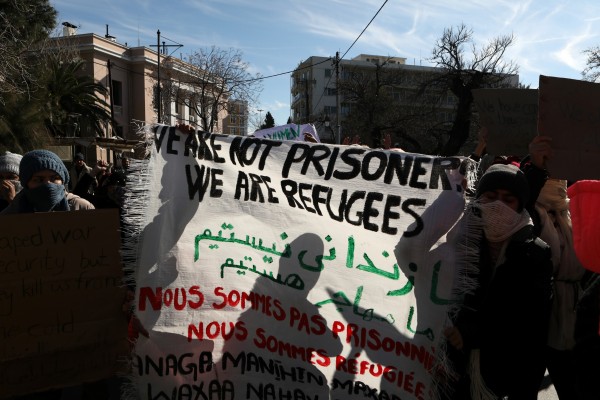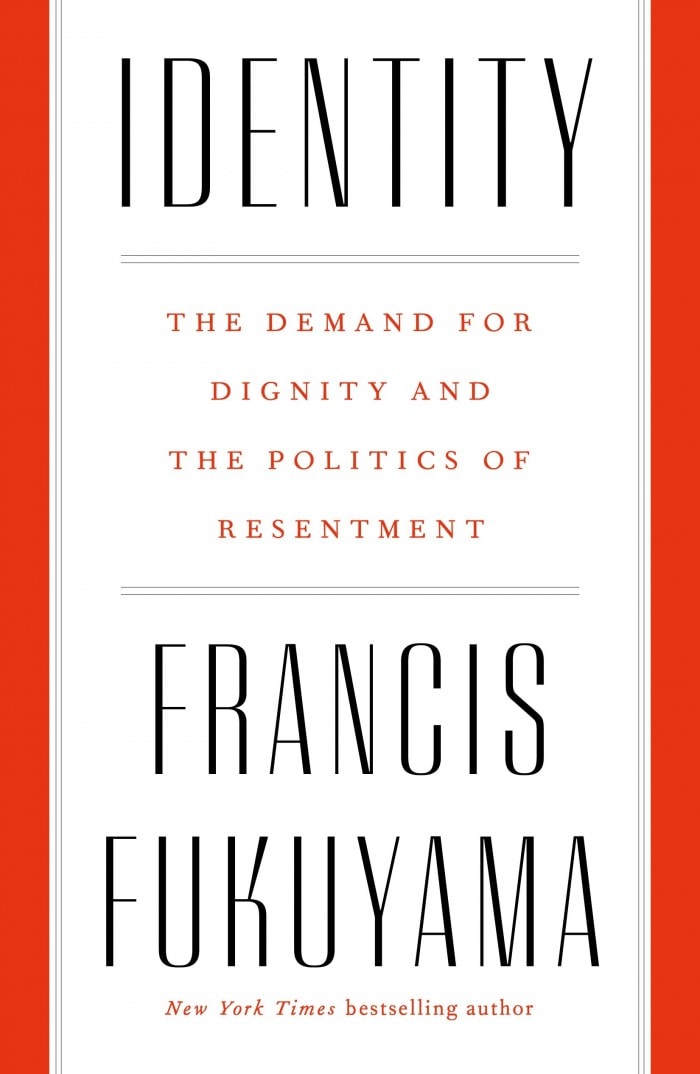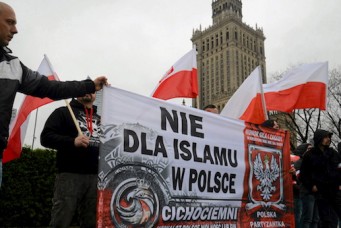Deconstructing Fukuyama
Taking apart the arguments of division that underscore the populist movements emerging in today’s liberal democracies
Identity: The Demand for Dignity and the Politics of Resentment. By Francis Fukuyama, New York, Farrar, Straus and Giroux, 2018.
Since the publication of his article on the “End of History” in 1989, all books by Francis Fukuyama have had large echoes. They raised crucial issues of our times and thus generated large discussions. In itself, this is an acknowledgment of the value of Fukuyama’s contribution to the global intellectual debate, even when his arguments were questioned and deeply challenged. In 2018, Fukuyama returned to the fray of ideas with his book about identity and dignity. This book discussion participates in this healthy debate, challenging the arguments put forward by the celebrated author. The first two sections of this essay will summarize Fukuyama’s arguments as read by the discussant, who will then contest them in four successive subsections.
On Dignity and Nations
In over six chapters, out of fourteen, Francis Fukuyama resorts to neurology and most particularly philosophy to explain his arguments about human psychology. He draws at length on philosophers—from Plato to Hegel and Marx, through Hobbes, Lock, Kant, and Rousseau—and also looks into Luther’s Protestant Reformation. His purpose is to bring out that beyond rational calculation and absolute gains, humans long for the recognition of their worth. This is the dignity which humans consider they are entitled to and that is the engine of history; relative gains are important for humans. Hence, dignity will only be achieved if the principle of equality is recognized and people or groups feel that others’ dignity is not worth more than theirs. True, some humans want to be recognized as superior. However, whether benevolent or malevolent, these humans are a minority.
The worth that each human wants recognized is that of his/her inner self. In a liberal perspective, every individual wishes his/her inner self equally respected. But this is not sufficient. People also want that respect to extend to the group of people they are tied to by religious, ethnic, and linguistic bonds. In the modern world, as religious ties weakened, national bonds served to keep people together. The national bond became an extension of the inner self. Seen differently, the national bond brought inner selves together to constitute nations. Nations were born out of longing to Gemeinschaft, the sense of village community, after village inhabitants moved to Gesellschaft, or urban society. This is the origin, explanation, and justification of nationalism. In sum, human beings need recognition of individual dignity and community dignity, i.e. the dignity of the national group that they constitute. Dignity of the self is that of his/her individual identity. The dignity of a nation as a result resides in the recognition of its national identity.
The worth that each human wants recognized is that of his/her inner self. In a liberal perspective, every individual wishes his/her inner self equally respected. But this is not sufficient. People also want that respect to extend to the group of people they are tied to by religious, ethnic, and linguistic bonds.
For example, Islamism is a type of nationalism. The difficulty young Muslims find to integrate in secular European societies, evidenced by their largely higher unemployment rates than those of their age groups, explains their adherence to Islamism. In pursuit of the recognition of their dignity, they adopted distinctive markers of Islamism such as wearing hijabs, and some went as far as advocating violence.
History, especially in the twentieth century, reveals the violence and destruction that nations were responsible for perpetuating. There is no inevitability to this. Nations can also be progenitors of progress when their identities are cohesive and they are built on democratic principles. Cohesive national identities explain the successes of Japan, South Korea, and China, as opposed to Kenya, Nigeria, and countries in the Middle East. Cohesive national identities are also at the basis of advanced social policies in Scandinavian countries. Cooperation between benevolent nations has been possible in the past, and is still possible now and will be in the future. There is no need to change this structure of cooperation, in particular because there is no construct beyond the state that has proven democratic and hence a source of good.
Identity Politics
After laying the groundwork, the second part of Fukuyama’s book seems to encapsulate the real purpose for which it was written. In the United States and in European liberal democratic countries, the Left has shifted from championing working class causes and calling for redistribution of wealth and income to championing issues such as gender equality and the rights of blacks, women, immigrants, those who identify as LGBTQ+, and refugees. These issues are about the identities of individuals belonging to these peoples and the identities of the groups themselves. This is called identity politics. In the process, the Left neglected the identity of the white majority especially of those who lost in the ongoing technological and economic processes inherent to globalization. Movies are being made about blacks, women, and other specific groups, and not about the white ‘losers’ who still constitute the majority.
Identity politics in Europe date back to the events of May 1968 in France, after which the old goals of the Left “no longer seemed relevant to the new Europe”. “The left’s agenda shifted from socioeconomic concerns to culture” and the new cultural Left shifted to “attacking the Christian and democratic values on which the Western Enlightenment had been based”. The decline of the Left in Europe is because it adopted “multiculturalism”. The Right reacted to the Left’s neglect and seized the opportunity to do its own identity politics by emphasizing the primacy of national populations in their entirety, beyond the dignity of particular groups that are members of the national community and especially of immigrants and refugees.
Indeed, for Fukuyama, rather than recognizing rights specific to immigrants and refugees, European states should assimilate them. They have failed in doing that. The author particularly focuses on migration to Europe from Muslim countries, which was, in his view, “always more controversial”. He laments that “guest workers from Muslim majority countries such as Turkey, Pakistan and Morocco did not return home as originally expected”, but rather brought their children and settled. The controversy caused by Muslims’ immigration was in some cases the result of racism, xenophobia or cultural prejudice; in other cases, due to fears that they would not integrate or to claims that they were living in self-enclosed neighborhoods and not learning national languages. Here, Fukuyama returns to identity. He identifies manifestations of distinctive social practices of Muslim communities in Europe such as arranged marriages, disapproval of homosexuality, honor killing, and the “kind of anti-Semitism” displayed by “many Muslims” “as a result of the bitter Israeli-Palestinian conflict”.
The terrorist attacks perpetrated by extremist Muslims in Europe in the second decade of the twenty-first century, following the establishment of the Islamic State in Iraq and Syria and the Syrian civil war, focused attention on citizenship and national identity, “precisely because so many of the attackers were citizens of the countries they attacked and second generation children of immigrants”. Fukuyama is decidedly against dual citizenship because it may create dual and conflicting allegiances. Calls by Turkish President Recep Tayyip Erdogan on Germans of Turkish origin to vote for certain candidates in Turkish elections are evidence of this conflict. European states also give too many rights to refugees, to whom they only owe moral obligations. Fukuyama regrets that the European Left abandoned the idea of the assimilation of migrants in their host societies and its adoption of multiculturalism. For migrants and refugees to partake in the dignity of the entire population, they should be socialized to the culture of host countries, including particularly to their liberal democratic values.
Their identity would thus morph into that of the majority host population. The need of humans—both hosts and immigrants—for dignity would thus be realized. The nation is the best seat to celebrate collective identity to preserve the equal dignity of all its inhabitants. In Europe, the European Union (EU), which is an experiment in postnational political organization, is not democratic. The unaccountable European Commission (EC) holds too much power. This power should be transferred to the European Parliament (EP).
Reading Through Fukuyama
The above is one reading of the main messages of Fukuyama’s book. Other readings are certainly possible of this book rich in ideas. The value of ideas resides in the debates they incite. Therefore, this book discussion will now challenge four main and closely interrelated arguments in the messages summarized above. These arguments are about identity politics and multiculturalism, nations and nationalism, migrants and refugees, and Muslim immigration and host European societies.
Identity Politics and Multiculturalism
Two observations are points of departure for commenting on identity politics and multiculturalism, as argued by Fukuyama. First, any argument depends on when the story it tells begins. The second observation is about the argument itself.
First, the date in which Fukuyama sets the emergence of identity politics, which is the first observation, is here put into question.
The May 1968 events in France did have cultural consequences, but were not about identity politics. They were very much about redistributive socioeconomic issues. Workers staged strikes and occupied factories. The protests only came to an end after the Accords de Grenelle, named after the street where the headquarters of the French Ministry of Labor is situated. Parties to the agreements, which raised minimum wage by 35 percent, were the government, trade unions, and employers’ organizations. Four years after May 1968, the French Left (which was not only made of the French Communist Party (PCF)) put together the famous Programme Commun de la Gauche, which included clear left-wing propositions such as nationalizations—hardly an identity issue as conceptualized by Fukuyama.
This is the program that led François Mitterrand to the presidency and the Socialists, accompanied by Communists, as a minority partner, to power in France in 1981, more than a decade after May 1968. Elements of the Programme Commun were put in practice between 1981 and 1983, when the new government put in place by President Mitterrand had to recognize the realities of the international financial and monetary system and put a halt to its expansionary redistributive policies.
Second, it is not that the Left in industrialized countries abandoned distributive and redistributive issues and championed instead identity issues of subnational cultural groups and of migrants and refugees. The emergence and preeminence of identity politics in the last four decades may rather have two objective and complementary explanations. The first is the retreat of the manufacturing sector in favor of the services sector and the ever more capital- and knowledge-intensive modes of production in advanced economies. This resulted in the shrinking of the manual working class, the social force claiming for and supporting distributive and redistributive policies in industrialized countries.
The second explanation for the emergence of identity politics lies in the neoliberal economic policies that have pervaded both the industrialized and developing worlds since the 1980s. The ideological foundations of these policies intentionally suppress the questions of distribution and redistribution. Deregulation, privatization, reduction of public expenditures—in sum the shrinkage of the state—aim at curtailing its redistributive functions. For advocates of neoliberal policies, there are no relative winners and relative losers in economic activities. All nationals of any one state will win or lose together. This explains that identities, based on socioeconomic cleavages, waned. Importantly for the purposes of this discussion, by the same token, the cleavage separating nationals from aliens, whether immigrants or refugees, widened. This may also be considered an explanation for the resurgence of nationalism in Europe and the later advent of populist and far right parties.
The adoption by the European Left of multiculturalism is debatable. Multiculturalism has never been adopted across the board in liberal democracies in Europe. Multiculturalism and assimilation, distinct from one another, were the two approaches to the integration of immigrants and of nationals of migrant origin in liberal democratic Europe. The United Kingdom adopted multiculturalism. However, in France, the Right and Left never put into question assimilation as a policy meant to ensure the values of the “République”: liberté, égalité, fraternité. This should not mean that the assimilation policy, so desired by Fukuyama, was fully successful in integrating immigrants. Far from it, in fact, the critique made of assimilation was that it failed to recognize differences at origin between immigrants and natives. Applying the same social policies to population groups with different social, cultural and economic characteristics could never result in equality but rather in discrimination. Nothing more than discrimination undermines democratic values.
Nations and Nationalism
The assimilation called for by Fukuyama is intended to reinforce the nation-states that have hosted the migrants. The nation-state that is liberal and democratic is the utmost and benevolent expression of political organization. Thus, Fukuyama reverts to his argument of the “End of History”. However, in developing his advocacy of the liberal democratic nation-state, Fukuyama decries the EU as a form of political organization that is supranational or postnational. Here, he inadvertently converges with the postures of the anti-European integration and Euro-skeptic populists and far-right movements that he purports to neutralize with his book.
As for democracy in the EU, Fukuyama fails to recognize that the powers of the EP have indeed been significantly expanding since the 1997 Amsterdam Treaty, an expansion confirmed with the adoption of the Lisbon Treaty in 2007. It is not at the expense of the powers of the EC that the EP has and may continue expanding its prerogatives, but rather at those of the European Council, which represents member nation-states and acts as the upper legislative chamber in the EU. The EC is the engine of European integration and is supposed to see to it that EU law is respected and enforced. Yet, the EC does not enact the regulations and directives that constitute EU law. In fact, contrary to Fukuyama’s argument, the “Liberal–Intergovernmentalist” approach to analyzing European integration goes as far as asserting that the EC has no power of its own and compares it to secretariats of international organizations, admittedly an excessive allegation.
Several questions can be raised in respect to the argument that successful nations are cohesive and democratic. Why are many postcolonial “nation-states” not cohesive in the first place? Is it because they are not democratic, or rather because they are artificial constructs that do not derive from long and unforced historical processes? On the other hand, are all liberal democracies cohesive and immune to disintegrative tendencies? The examples of Belgium and Spain are eloquent replies to this question. When nations lack cohesiveness, for both non-democratic, postcolonial states and liberal democracies, the cause may rather reside in the historical processes that led to their emergence. Fukuyama also explains the strong welfare state of Scandinavian countries by their equally strong sense of national identity. Does this mean that the Greek identity is weaker, which explains its equally weaker welfare state? Or that the difference in welfare stateness between Canada and the United States is due to the stronger sense of national identity in the former than in the latter? The readers will assess this for themselves.
Immigrants and Refugees
Fukuyama is not completely wrong in designating the native, white, working class as a loser in the current process of globalization. But are immigrants responsible for their loss? The findings of the vast majority of research undertaken in Europe have revealed that the impact of migrant workers on unemployment rates and wages of natives is nil. For the little remaining research, the impact is negligible. In bringing evidence to support his assertion that levels of immigration are historically unprecedented, Fukuyama includes a table on the foreign-born population in a number of industrialized countries, including in particular in the EU member states. In fact, these statistics encompass nationals of other EU member states, who are the majority of the foreign-born. When addressing the “Third Country Nationals” migration question in the EU, as in most media, Fukuyama implicitly suggests that migrant workers impose themselves on Europe. For him, this is a question of supply. He ignores that demand exists for migrant labor. Migration is intrinsically linked to the functioning of the global economy, as much in Europe as in the United States. Whether in dual labor market or world system theories, this has long been emphasized.
Fukuyama asserts the right of the EU to protect its external borders and regrets that FRONTEX, the European Border and Coast Guard Agency, lacks the resources and the support of member states necessary for it to perform its functions. He skips that the EU has been externalizing its borders for some two decades and that, eliciting a United Nations (UN) Security Council resolution, it has militarized action in the Mediterranean against smugglers that it seems to consider as solely responsible for irregular migration. As for FRONTEX, its budget has very largely increased; from 87.9 million euros in 2010, to 143 million euros in 2015, to 281 million euros in 2017, and finally to 322 million euros in 2020.
For Fukuyama, the flows of the displaced seeking protection in Europe in 2014–2015 constituted an unprecedented “refugee crisis”. He again adopts an expression popularized by the media—“refugee crisis”—when the quasi-entirety of European scholars and experts have rejected it, arguing that there had not been any crisis. How would a little less or more than a million constitute a crisis for highly advanced economies and a total population of 504 million Europeans? Compare this to Lebanon, a struggling developing country with a population of just four million, which hosts over a million refugees.

Refugees and migrants demonstrate in the city of Mytilene against living conditions in the Moria camp, on the island of Lesbos, Greece, January 30, 2020. Elias Marcou/Reuters.
There is no question that the sudden arrival of hundreds or tens of thousands to any country constitutes an immediate challenge to its ability to receive them. However, advanced countries are highly resilient and have the economic and institutional resources necessary to accommodate them. German Chancellor Angela Merkel, a good part of her Christian Democratic Union and of the German Social Democrats, Liberal Democrats, and Greens knew that. Evidence of this fact is that, four years on, vociferous rejection of refugees and calls for their repatriation have largely waned in Germany. Russian President Vladimir Putin could not entice Germany to contribute to the reconstruction of Syria by dangling the promise of refugee return.
Fukuyama regrets that Europe has given too many rights to refugees, to whom sympathy and compassion—in other words, only moral obligations—are due. He misses that international law, very specifically the 1951 Convention on the Status of Refugees, creates binding obligations for state parties and rights of legal nature for refugees. European countries had been behind the drafting and adoption of the Convention after the end of World War II. Or, does the Convention create exaggerated rights when refugees originate in developing countries or in different cultural circles than those of host states?
Muslim Immigration and European Host Societies
Immigration, especially from Muslim countries to Europe, is a major concern for Fukuyama. He claims that it had always been controversial, and more so when the guest workers from countries such as Morocco, Turkey, and Pakistan did not return to their home countries as they were expected to do. This is because Muslim immigrants neither learn the languages of host countries nor adopt the liberal democratic creed. In sum, they don’t “assimilate”, and some even turn terrorist. Fukuyama ignores that migrant workers from North Africa were welcome in the 1960s and early 1970s when they were recruited to contribute to the “Glorious Thirty” years of reconstruction and economic growth in Europe following World War II. Then, the long factory lines, trade unions, and leftist parties, such as the PCF, integrated them with the majority native workers.
The overwhelming majority of Muslim or Muslim-origin immigrants are well-integrated in their host countries. Even if suffering from discriminative higher unemployment rates and a somewhat ethnic division of labor, these immigrants are present in all segments of activity including the political. The mayor of the largest port in Europe, Rotterdam, is an immigrant from Morocco and a great number of ministers in successive French governments were immigrants from or had origins in North Africa. This undoubtedly honors the Netherlands and France, as it does the efforts of immigrants to integrate. Dual citizenship, decried by Fukuyama, is at the heart of approaches to integrate immigrants. It is meant to overcome discrimination against immigrants and to facilitate their integration in addition to building bridges between countries of origin and destination. This interdependent, transnational approach to cooperation is admittedly at variance with Fukuyama’s perspective. It emphasizes absolute gains for all parties, whereas Fukuyama, true to realist and nationalist perspectives, shows understanding toward concerns about relative gains. It may be appropriate to signal here that, in his report to the first High-level Dialogue on International Migration and Development in 2006, the Secretary-General of the UN called on both migrants and host states to adapt to the new realities of migration.
Conclusions
All throughout the book, Fukuyama is keen on making clear that his intent is to counter the arguments of the populist forces that have lately gained influence. He reiterates in the very last sentences that, as much as identity can be used to divide, it can and will be used to remedy the populist politics of the present. This is a most worthy objective.
Unfortunately, quite a few arguments he advances may be turned around to play into the hands of these same populists. Quite a few mainstream parties in Europe have trodden the path Fukuyama walks. It is this path which has obvious pitfalls for the vibrancy and embracing potential of democracies across Europe.
Ibrahim Awad is professor of practice of global affairs and the director of the Center for Migration and Refugee Studies in the School of Global Affairs and Public Policy at the American University in Cairo. From 2005 to 2010, he acted as director of the International Migration Programme at the International Labour Organization (ILO), Geneva, and prior to that, between 2005 and 2010, he was the ILO’s director for the North Africa sub-regional office. His most recent publications include “The Challenge of Global Governance in the Sustainable Development Agenda,” “The Multiple Levels of Governance of International Migration:Understanding Disparities and Disorder,” and “Towards a Joint Approach to Migration and Asylum in the Euro-Mediterranean Space,” to name a few.
Read More




